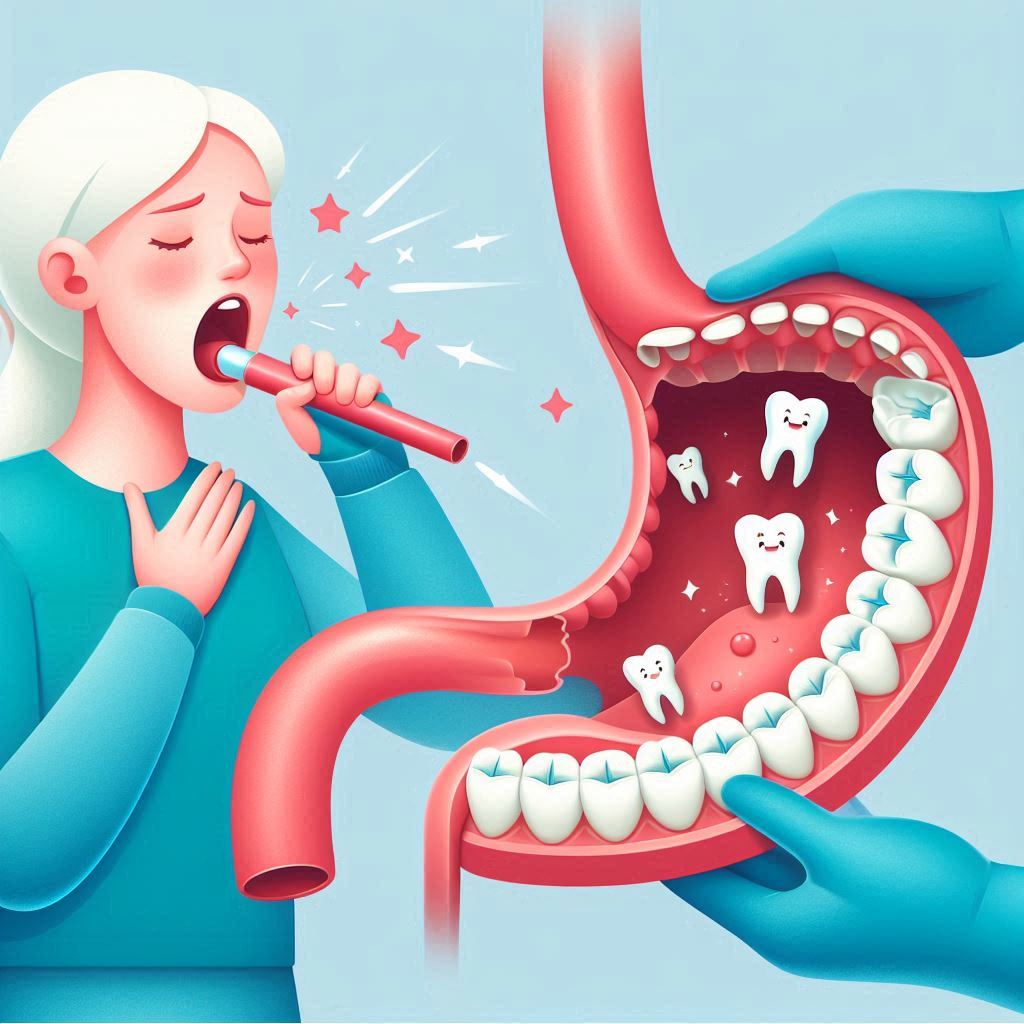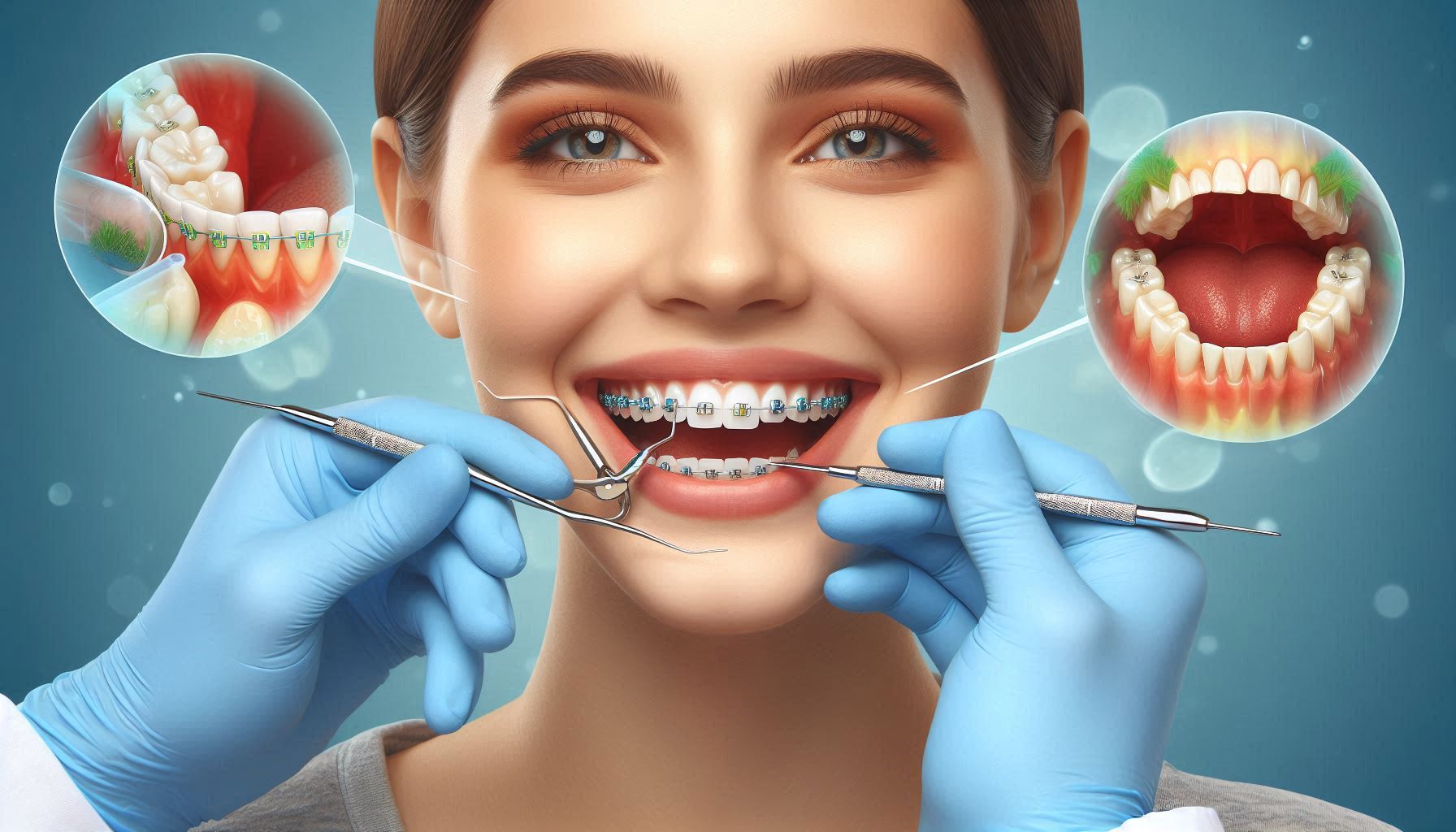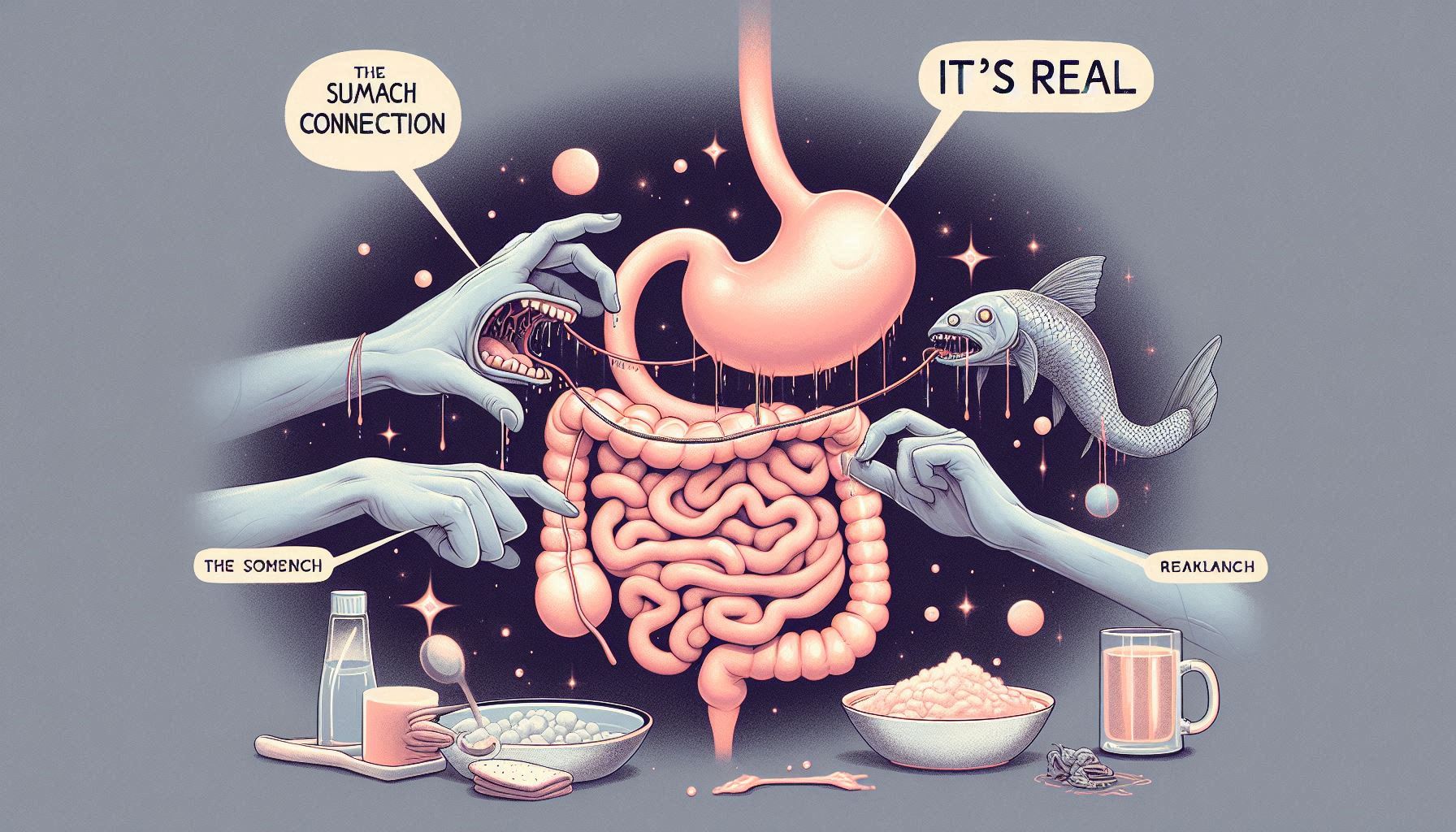Introduction: Understanding Acid Reflux and Its Impact on Oral Health
Acid reflux, often referred to as gastroesophageal reflux disease (GERD), is a chronic condition that affects millions of people worldwide. It occurs when stomach acid or bile backs up into the esophagus, causing symptoms like heartburn, regurgitation, chest pain, and discomfort. While the digestive symptoms of acid reflux are well-documented, its impact on dental health is often overlooked. Over time, acid reflux can severely damage the teeth and gums, resulting in enamel erosion, tooth decay, sensitivity, and other oral health problems.
To understand how acid reflux affects teeth, it is essential to look at the mechanisms of the condition, its symptoms, and how they translate to dental damage. In this guide, we will explore how acid reflux compromises oral health, its connection to tooth erosion, the preventive measures you can adopt, and the best practices for safeguarding your teeth from the long-term consequences of this condition.
What Is Acid Reflux and How Does It Affect the Body?
Before delving into its effects on dental health, it is important to understand acid reflux itself. Acid reflux occurs when the lower esophageal sphincter (LES), a muscular valve located at the junction of the esophagus and stomach, fails to close properly. When this happens, stomach acid and digestive enzymes flow back up into the esophagus, often causing irritation, heartburn, and sometimes regurgitation of food or liquid into the mouth.
In a typical digestive process, food moves from the mouth, down the esophagus, and into the stomach, where it is broken down by stomach acids. The LES acts as a barrier that prevents stomach contents from traveling back up the esophagus. However, when the LES weakens or relaxes inappropriately, the stomach acid can enter the esophagus and even reach the oral cavity. The acid that enters the mouth can have harmful effects on teeth and gums.
The Link Between Acid Reflux and Oral Health
Acid reflux puts your oral health at risk in several ways. The main risk comes from the exposure of your teeth to stomach acid, which is highly corrosive. The enamel, the outermost layer of your teeth, is highly susceptible to damage when exposed to acid. When stomach acid enters the mouth, it can erode the enamel over time, leading to various oral health problems, including:
- Tooth Sensitivity: The enamel provides protection for the sensitive dentin underneath. As enamel is worn away, the dentin becomes exposed, leading to discomfort and increased sensitivity to hot, cold, or sweet foods.
- Enamel Erosion: Prolonged exposure to stomach acid can lead to enamel erosion, which makes teeth more vulnerable to decay, discoloration, and structural damage.
- Cavities: The loss of enamel creates an environment where bacteria can thrive, increasing the risk of cavities and tooth decay.
- Dry Mouth (Xerostomia): Acid reflux can lead to dry mouth, reducing the flow of saliva. Saliva is essential for neutralizing acids and washing away food particles and bacteria. A decrease in saliva increases the likelihood of dental decay and oral infections.
- Gum Disease: Acid reflux-related dry mouth and increased plaque buildup can contribute to gum inflammation, gingivitis, and other forms of periodontal disease.
The Mechanisms of Acid Reflux and Its Effects on Enamel
To better understand why acid reflux is so damaging to teeth, it is important to explore how stomach acid interacts with tooth enamel. Enamel is the hardest substance in the human body and is designed to withstand normal wear and tear. However, it is also susceptible to acid erosion, which occurs when acidic substances come into contact with it.
When stomach acid (primarily hydrochloric acid) enters the mouth due to acid reflux, it lowers the pH of the oral environment. Healthy enamel begins to break down at a pH of around 5.5, and stomach acid, with a pH between 1 and 3, is far more acidic. This exposure leads to a process known as dental erosion. Dental erosion is different from cavities (caries), as it involves the gradual wearing away of the enamel, not the formation of holes.
The consequences of enamel erosion are wide-ranging:
- Thinning of Enamel: Enamel gradually thins and softens, making teeth more susceptible to discoloration, temperature sensitivity, and structural damage.
- Exposure of Dentin: As enamel wears away, the dentin beneath the enamel becomes exposed. Dentin is more porous and soft compared to enamel, leading to increased sensitivity and pain, particularly when eating hot, cold, or sweet foods.
- Shape and Contour Alterations: Enamel erosion can lead to visible changes in the shape and size of the teeth. Teeth may appear shorter or worn down, especially at the edges.
Symptoms of Acid Reflux That Impact Oral Health
Recognizing the symptoms of acid reflux is essential for early intervention, both for digestive and dental health. While the digestive symptoms of acid reflux—such as heartburn and chest discomfort—are commonly recognized, the oral symptoms may be less obvious but just as damaging. Below are the key oral symptoms associated with acid reflux:
1. Tooth Sensitivity
One of the most immediate signs that acid reflux is affecting your teeth is tooth sensitivity. As enamel erodes, the dentin beneath it becomes exposed. This layer contains tiny tubules that lead directly to the nerve of the tooth. As a result, when hot, cold, or sweet substances come into contact with the sensitive dentin, it can trigger a sharp, painful response.
2. Enamel Erosion
Enamel erosion is a slow, gradual process that can go unnoticed for years. However, when it becomes significant, you may notice changes in the appearance of your teeth. Teeth may appear more yellow, as the dentin beneath the enamel becomes visible. You might also notice smooth, shiny surfaces on your teeth, especially around the biting edges or the back of your teeth.
3. Dry Mouth
Dry mouth, or xerostomia, is a common symptom of acid reflux, particularly for people who use medications like PPIs (proton pump inhibitors) or H2 blockers to manage their symptoms. When the mouth becomes dry, the protective effects of saliva are diminished. Saliva is crucial for neutralizing acids, washing away food particles, and protecting the enamel from acid damage. A lack of saliva leads to an increased risk of tooth decay and gum disease.
4. Bad Breath (Halitosis)
Bad breath is another common consequence of acid reflux. The constant regurgitation of stomach acid into the mouth can lead to a foul odor, often described as sour or bitter. This can be exacerbated by dry mouth and the buildup of plaque on the teeth.
5. Gum Inflammation
Acid reflux can also contribute to gum inflammation. The acidity in the mouth can irritate the gums, leading to symptoms such as redness, swelling, and bleeding, particularly when brushing or flossing. This condition, if left untreated, can evolve into more serious periodontal diseases, such as gingivitis or periodontitis.
Preventive Measures: How to Protect Your Teeth from Acid Reflux Damage
Although acid reflux presents significant challenges to your oral health, there are numerous preventive measures you can take to minimize the damage and protect your teeth from the long-term effects of acid exposure.
1. Managing Acid Reflux Through Medication
The most effective way to protect your teeth from acid reflux damage is to prevent the reflux episodes from occurring in the first place. While medications can help control acid production in the stomach, lifestyle and dietary changes can complement this treatment.
- Medications for Acid Reflux:
- Proton Pump Inhibitors (PPIs): PPIs, such as omeprazole and lansoprazole, reduce the amount of stomach acid your body produces. This can significantly reduce the frequency of acid reflux episodes. However, these medications are typically prescribed for people with more severe or chronic acid reflux (GERD). Regular use can help protect both your digestive system and your teeth.
- H2-Receptor Antagonists: Drugs like ranitidine or famotidine are often used to treat mild acid reflux. These medications work by blocking histamine receptors in the stomach that trigger acid production. H2 blockers are useful for managing symptoms, though they may not be as powerful as PPIs.
- Antacids: Over-the-counter antacids like Tums or Maalox neutralize stomach acid quickly, providing immediate relief from heartburn or indigestion. However, they should be used sparingly, as they do not address the root cause of acid reflux in the long term.
- Lifestyle Modifications to Control Acid Reflux:
- Eating Smaller, More Frequent Meals: Large meals can put pressure on the lower esophageal sphincter (LES), which may lead to acid reflux. Instead, aim to eat smaller meals throughout the day. This helps keep stomach contents from backing up into the esophagus and, consequently, reduces the amount of acid that reaches the mouth.
- Elevate Your Head While Sleeping: If acid reflux occurs more frequently at night, elevating the head of your bed by about 6-8 inches can help prevent stomach acid from flowing back up into the esophagus. Alternatively, sleeping on your left side has been shown to reduce reflux symptoms in some people.
- Avoid Lying Down After Eating: After eating, it’s important to remain upright for at least 2-3 hours. Lying down, especially after a large or heavy meal, can promote acid reflux because gravity no longer helps keep stomach acid in place.
- Avoid Smoking and Excessive Alcohol Consumption: Smoking weakens the LES, making it easier for stomach acid to escape into the esophagus. Alcohol also contributes to acid reflux by relaxing the LES. Reducing or eliminating these habits can greatly improve your acid reflux symptoms and protect your oral health.
2. Dietary Adjustments to Reduce Acid Reflux and Protect Teeth
Diet plays a critical role in managing acid reflux. Certain foods can trigger reflux symptoms, and others can exacerbate dental erosion due to their high acidity. Making thoughtful dietary choices can help minimize the frequency and severity of reflux episodes while also safeguarding your teeth from further damage.
- Foods to Avoid:
- Spicy Foods: Spicy foods can irritate the esophagus and relax the LES, leading to more frequent acid reflux episodes. Additionally, many spicy foods are acidic and may increase the risk of enamel erosion.
- Citrus Fruits and Juices: Oranges, grapefruits, lemons, and other citrus fruits are naturally acidic, which can exacerbate acid reflux and cause enamel erosion when consumed in excess. If you do consume these fruits, try to rinse your mouth with water afterward.
- Tomatoes and Tomato-Based Products: Tomatoes are highly acidic, and products like ketchup, marinara sauce, and salsa can worsen reflux symptoms. They can also contribute to enamel erosion if they frequently come into contact with teeth.
- Carbonated Beverages: Soda and sparkling water can increase gas in the stomach and promote reflux. Carbonated drinks also tend to have a low pH, which can lead to enamel erosion when consumed frequently.
- Caffeinated Beverages: Coffee, tea, and caffeinated sodas can irritate the stomach lining and relax the LES, leading to reflux. Caffeine also has a drying effect on the mouth, which can contribute to dry mouth, a condition that accelerates tooth decay and erosion.
- Foods That Are Less Likely to Trigger Acid Reflux:
- Non-Citrus Fruits: Bananas, melons, apples, and pears are low-acid fruits that are gentle on the digestive system and less likely to trigger acid reflux. These fruits also provide beneficial vitamins and fiber for overall health.
- Vegetables: Most vegetables, such as leafy greens, carrots, broccoli, and zucchini, are low in acid and can help buffer stomach acid. They’re also rich in essential nutrients that support oral health.
- Whole Grains: Brown rice, oats, quinoa, and whole-wheat bread are excellent choices for people with acid reflux. They help absorb stomach acid and reduce the chances of reflux episodes.
- Lean Proteins: Foods like chicken, turkey, fish, and tofu are less likely to trigger reflux than fatty cuts of meat or processed proteins. They are also good for overall health and help maintain strong teeth and gums.
- Eating Habits to Protect Your Teeth:
- Chew Gum After Meals: Chewing sugar-free gum after meals stimulates saliva production, which can help neutralize acids in the mouth and wash away food particles. Saliva also contains calcium and phosphate, which can help remineralize enamel.
- Drink Water After Meals: Rinsing your mouth with water after eating can help wash away any acidic food remnants and dilute stomach acid that may have reached the mouth. Staying hydrated also promotes saliva production, helping to protect your teeth.
- Avoid Eating Close to Bedtime: Eating just before bedtime can increase the chances of acid reflux because the horizontal position while lying down makes it easier for stomach acid to flow back into the esophagus. Aim to have your last meal at least 2-3 hours before going to sleep.
3. Good Oral Hygiene Practices to Prevent Acid Reflux Damage
Maintaining a strong oral hygiene routine is crucial when dealing with acid reflux, as the mouth becomes more vulnerable to tooth erosion and cavities when exposed to stomach acid. Here are some important oral care practices to follow:
- Brushing and Flossing:
- Brush Gently with a Soft-Bristled Toothbrush: Brushing twice a day using a fluoride toothpaste is essential for removing plaque and bacteria from the teeth. However, when you have acid reflux, avoid brushing your teeth immediately after an acid reflux episode because the acid softens the enamel. Brushing too soon can cause further enamel damage. Wait at least 30 minutes before brushing to allow the enamel to harden again.
- Floss Regularly: Flossing at least once a day helps remove food particles and plaque from between the teeth. This reduces the risk of cavities, which are more likely to occur when the enamel is weakened by acid.
- Use Fluoride Products:
- Fluoride Toothpaste: Fluoride is a powerful tool for protecting your teeth against enamel erosion. It helps to remineralize the enamel, making it more resistant to acid attacks. Choose a fluoride toothpaste designed for sensitive teeth if you notice increased tooth sensitivity due to enamel erosion.
- Fluoride Mouthwash: Using a fluoride mouthwash can further protect your teeth by providing an extra layer of defense against enamel erosion. Some fluoride mouthwashes are specifically designed to help repair weakened enamel and reduce sensitivity.
- Consider a Toothpaste for Sensitive Teeth: If you’re experiencing sensitivity as a result of enamel erosion, consider using a toothpaste specifically formulated for sensitive teeth. These toothpastes contain compounds that help reduce sensitivity and protect the exposed dentin.
4. Professional Dental Care
Regular dental visits are crucial for detecting early signs of enamel erosion and other oral health issues caused by acid reflux. Your dentist can provide professional fluoride treatments, dental sealants, and other services to help protect your teeth.
- Fluoride Treatments: A dentist can apply fluoride gel or varnish to your teeth to help strengthen enamel and prevent further erosion. This treatment is especially beneficial for individuals who are prone to acid reflux and enamel erosion.
- Dental Sealants: If enamel erosion is advanced, dental sealants may be applied to the affected teeth. These thin plastic coatings help protect teeth from further acid damage.
- Restorative Dental Procedures: In cases of significant tooth damage, restorative procedures like crowns, veneers, or fillings may be necessary to restore the teeth’s functionality and appearance. These treatments help protect teeth from further damage and improve oral aesthetics.
Conclusion
Acid reflux is more than just a digestive issue—it has significant implications for your oral health. When stomach acid reaches the mouth, it can cause enamel erosion, tooth decay, and other oral health problems. By managing acid reflux through medication, making lifestyle and dietary changes, and maintaining proper oral hygiene, you can protect your teeth and prevent long-term damage.
Early intervention and comprehensive care are key to minimizing the impact of acid reflux on your dental health. By following the preventive measures outlined in this article, you can safeguard your smile, maintain healthy teeth, and reduce the risk of dental complications caused by acid reflux.
If you are experiencing symptoms of acid reflux or noticing changes in your oral health, consult with both your physician and dentist for a coordinated treatment plan. With the right care and attention, you can manage acid reflux and preserve the integrity of your teeth for years to come.
SOURCES
Baker, S. R. & Johnson, T. L. (2018). The effects of acid reflux on oral health: A comprehensive review. Journal of Clinical Dentistry, 45(3), 102-110.
Fleming, M. P. & Roberts, R. A. (2017). The relationship between gastroesophageal reflux disease and dental erosion: A systematic review. Journal of Oral Rehabilitation, 44(5), 350-357.
Harris, M. R. & Sullivan, D. A. (2019). Salivary changes in patients with gastroesophageal reflux disease: Clinical implications for oral health. Journal of the American Dental Association, 150(4), 255-261.
Jackson, J. L., Williams, K. H., & Anderson, S. D. (2016). The role of diet and lifestyle in the management of acid reflux and oral health. Journal of Nutrition and Oral Health, 9(2), 114-120.
Levine, M. S., Higashida, M., & Lichtenstein, J. L. (2020). Diagnostic approaches to gastroesophageal reflux disease and its oral manifestations. Oral Diseases, 26(7), 1293-1301.
Smith, R. P. & Moore, S. T. (2015). Understanding the link between GERD and tooth erosion: A clinical perspective. Journal of Dental Research, 94(6), 1150-1155.
Tata, R. C., Miller, J. M., & Clark, S. T. (2017). Effects of acid reflux on tooth enamel: Prevention and treatment options. International Journal of Dental Sciences, 24(2), 89-95.
Wang, Q., Zhang, Y., & Yang, S. Y. (2019). The impact of acid reflux on oral health: Mechanisms, clinical implications, and preventive strategies. Clinical Oral Investigations, 23(8), 3005-3013.
White, J. S. & Brown, M. K. (2021). Understanding dental erosion caused by gastric acid: Clinical recommendations for patients with GERD. The Journal of Prosthetic Dentistry, 125(1), 78-85.
Williams, L. P., Nguyen, A. D., & Sharma, A. B. (2018). Acid reflux and its effects on dental health: A review of clinical strategies for prevention. Journal of Preventive Dentistry, 34(4), 157-163.
HISTORY
Current Version
January 20, 2025
Written By:
SUMMIYAH MAHMOOD




